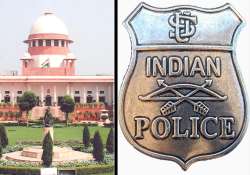SC: Govt Can't Tinker With Quota Rules For IAS/IPS
New Delhi, Jul 20: Reservation rules for general and reserved candidates in All India Services like IAS and IPS cadre cannot be altered by the Government as it would violate the Constitution, the Supreme Court

New Delhi, Jul 20: Reservation rules for general and reserved candidates in All India Services like IAS and IPS cadre cannot be altered by the Government as it would violate the Constitution, the Supreme Court has ruled.
A bench of justices R V Raveendran and A K Patnaik in their ruling said that the roster system for general, SC, ST and OBC candidates should be strictly adhered to and reservation in excess of the prescribed quota limit is illegal and unconstitutional.
“The roster system ensures equitable treatment to both the general candidates and reserved candidates and hence the roster system cannot be by-passed on some ground or the other which may result in unfair treatment to either general candidates or reserved candidates in violation of their right to equality under Articles 14 and 16(1) of the Constitution, Justice Patnaik writing the judgement observed.
The apex court passed the ruling while dealing with the petition of G Srinivas Rao, an IPS officer and a general candidate, challenging the Centre's decision to allot him the Manipur-Tripura Joint Cadre on October 27, 1999, instead of his home cadre Andhra Pradesh.
It was Rao's case that he obtained 95th rank in the Civil Services Examination, 1998, but another OBC candidate who secured 95th rank was allocated the AP cadre.
The Centre defended the decision on the ground that OBC candidates were granted two additional quota over the prescribed limit as their quota was not filled in 1998, whereas the general quota had two additional seats in the said year.
Interpreting the IPS (Cadre) Rules, 1954 the bench said it would be clear from Clause (2) of Para 3 of Centre's circular dated May 31, 1985 that vacancies for Scheduled Castes and Scheduled Tribes are to be reserved in the various cadres according to the prescribed percentage.
“Distribution of reserved vacancies in each cadre between outsiders and insiders are to be done in the ratio of 2:1 and this ratio is to be operationalised by following a cycle-outsider, insider, outsider-as is done in the cases of general candidates.
“It will be further clear from Clause (2) of Para 3 that the vacancies for the reserved categories are not to exceed the prescribed percentage for the reserved category ‘in the various cadres', the bench said.
The apex court rejected the Centre's plea that it had relied upon the previous five year data in arriving at the allocation figure.
“We fail to appreciate how data for 5 years in respect of allocation of OBC candidates was relevant for making the allocation,” it said.
The apex court however, agreed with the AP High Court's view that Rao cannot be granted any relief at this belated stage as he chose to file his suit two years after the cadre allotment. PTI
